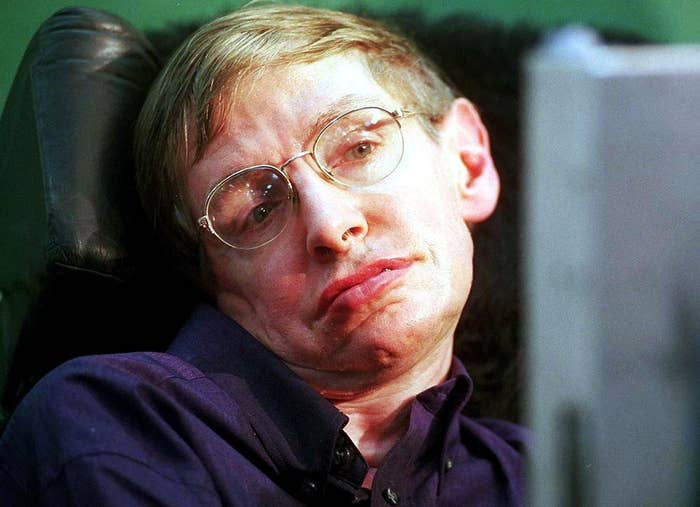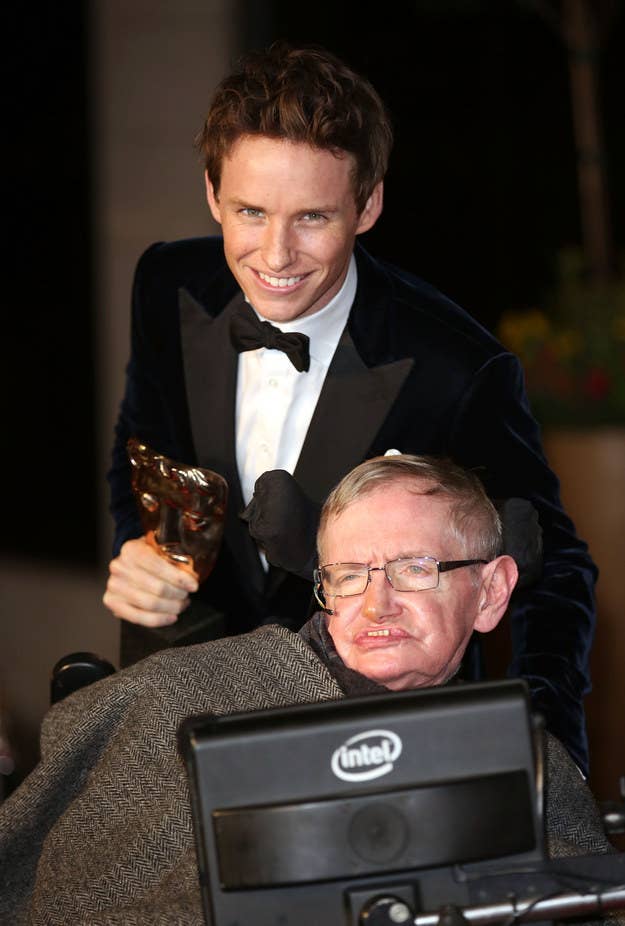
Stephen Hawking, who surmounted a paralyzing illness to master both cosmology and celebrity, died Wednesday at his home in Cambridge at age 76.
Hawking was arguably the world's most famous scientist, owing his acclaim to theoretical work released in the early 1970s that explained how black holes end and how the universe began. His fame went mainstream in 1988 when he published A Brief History of Time, a best-seller that made a star of a wheelchair-using, robot-voiced physicist who explored the greatest of cosmic mysteries.
"We are deeply saddened that our beloved father passed away today," Hawking's three children said in a statement. "He was a great scientist and an extraordinary man whose work and legacy will live on for many years. His courage and persistence with his brilliance and humour inspired people across the world.
"He once said, 'It would not be much of a universe if it wasn't home to the people you love,'" the statement concluded. "We will miss him forever."
Despite his use of a wheelchair owing to a motor neuron disease developed in the early 1960s, Hawking famously ascended in 1977 to the Lucasian Chair of Mathematics at the University of Cambridge, a position once held by Isaac Newton.
"My disabilities have not been a significant handicap in my field, which is theoretical physics. Indeed, they have helped me in a way," Hawking wrote in a 1984 essay, saying that illness gave him the time to think through physics problems, rather than lecture or perform administrative duties.
Together with physicist Roger Penrose, Hawking's work cemented the case for a fiery Big Bang starting the universe. Hawking also showed that black holes, collapsed stars so dense that even light can't escape their gravitational attraction, aren't really black. Energy actually radiates away from black holes (this is called "Hawking radiation" today) in tiny amounts explained by the equations of quantum mechanics, the rules governing the behavior of subatomic particles.
In this way, Hawking opened a door for physicists seeking to unite the laws governing gravity with those explaining atomic forces — the still-uncompleted goal of 21st-century physics.
"He thinks about the universe differently, due to his physical disability," Kip Thorne, a physicist at Caltech, said of Hawking in 2013. "That enabled him to make discoveries that no one else could make. And he has. They have shaken the foundations of physics."
The University of Cambridge confirmed Hawking's death, and paid tribute to its renowned former professor in a statement Wednesday.
"Professor Hawking was a unique individual who will be remembered with warmth and affection not only in Cambridge but all over the world," Cambridge vice chancellor Stephen Toope said in the statement. "His exceptional contributions to scientific knowledge and the popularisation of science and mathematics have left an indelible legacy. His character was an inspiration to millions. He will be much missed.”
Over the decades since the publication of A Brief History and Hawking's many subsequent books, his fame only increased, earning him appearances on TV shows such as Star Trek: The Next Generation and The Simpsons. Actor Eddie Redmayne won an Oscar for his 2014 portrayal of Hawking in The Theory of Everything, which explored the collapse of his marriage to his first wife, Jane Wilde Hawking, in revealing fashion.

"Stephen has done more to promote the public understanding of cosmology than any other living individual," Sir Leszek Borysiewicz, a physicist at the University of Cambridge, said at Hawking's 70th birthday celebration in 2012.
That promotion came not only from Hollywood, but in lectures and talks Hawking delivered in the familiar voice of the computer synthesizer that allowed him to speak. Hawking was known for a puckish sense of humor in his talks, revealing at the 70th birthday party that he found the biggest puzzle in the universe to be "women," adding that "they are a complete mystery."
He also made public bets against other cosmologists, conceding one to Caltech physicist John Preskill in 2004. In the bet, Hawking had argued that black holes irrevocably erased all information about the particles they consumed from the universe, something forbidden by the rules of quantum physics. He later called this his greatest mistake, sending Preskill, a baseball stats buff, an encyclopedia about baseball as his concession. (Later, Hawking said, "I gave John an encyclopedia about baseball, but maybe I should have just given him the ashes," to let him try to extract information from the burnt text.)
View this video on YouTube
John Oliver interviews Stephen Hawking in 2014.
"His image, of a brilliant mind in a broken body, resonated with the public," Declan Fahy, a science celebrity scholar at Dublin City University, told BuzzFeed News. "He understood celebrity, knew it needed emblematic figures, and could make it work because there was nobody quite like Stephen Hawking."
Hawking's second marriage, to his nurse, Elaine Mason, ended in divorce (amid tabloid headlines) in 2006. He is survived by three children from his first marriage, Robert, Timothy, and Lucy.
View this video on YouTube
Stephen Hawking takes the Ice Bucket Challenge in 2014.
CORRECTION
Sir Leszek Borysiewicz spoke at Hawking's 70th birthday celebration. A previous version of this post misstated his name.


